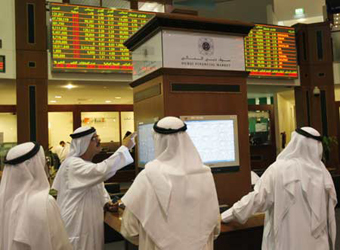Gulf stock markets look set to consolidate on Sunday but an increase in tensions with Iran and a possible further delay of Saudi Arabian energy price reforms could affect some shares.
In a major shift in U.S. foreign policy, U.S. President Donald Trump said on Friday he might ultimately terminate the 2015 agreement that lifted sanctions in Iran in return for Tehran rolling back technologies with nuclear bomb-making potential.
This could usher in a period of heightened geopolitical uncertainty in the Gulf and prevent strengthening of economic ties between Iran and the rest of the world. This would be negative for Dubai, which could play a role as a base for such trade and investment.
Few listed Gulf countries have major exposure to Iran but Saudi food giant Savola obtained 2.76 billion riyals ($736 million) of its 25.31 billion riyals of revenue last year from its Iranian business.
One potential positive for Saudi stocks is that Riyadh looks increasingly likely to delay fuel price hikes originally planned for this year. The International Monetary Fund said last week that Riyadh was reviewing the speed of its austerity programme to avoid hurting its economy, and Saudi finance minister Mohammed al-Jadaan told Bloomberg television in Washington at the weekend that the government would not rush to impose austerity steps.
In Abu Dhabi, Union National Bank reported flat third-quarter net profit of 410 million dirhams ($111.7 million), at the low end of estimates; EFG Hermes had predicted 403.0 million dirhams and SICO Bahrain, 452.4 million dirhams.
Global stock markets ended on a firm note at the end of last week, while Brent crude oil rose 1.6 percent to $57.17 a barrel.
source: Reuters


